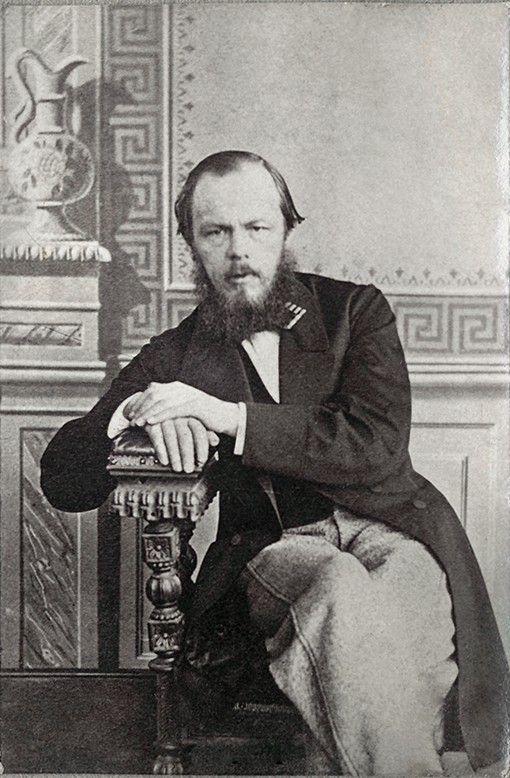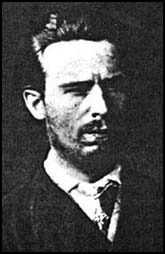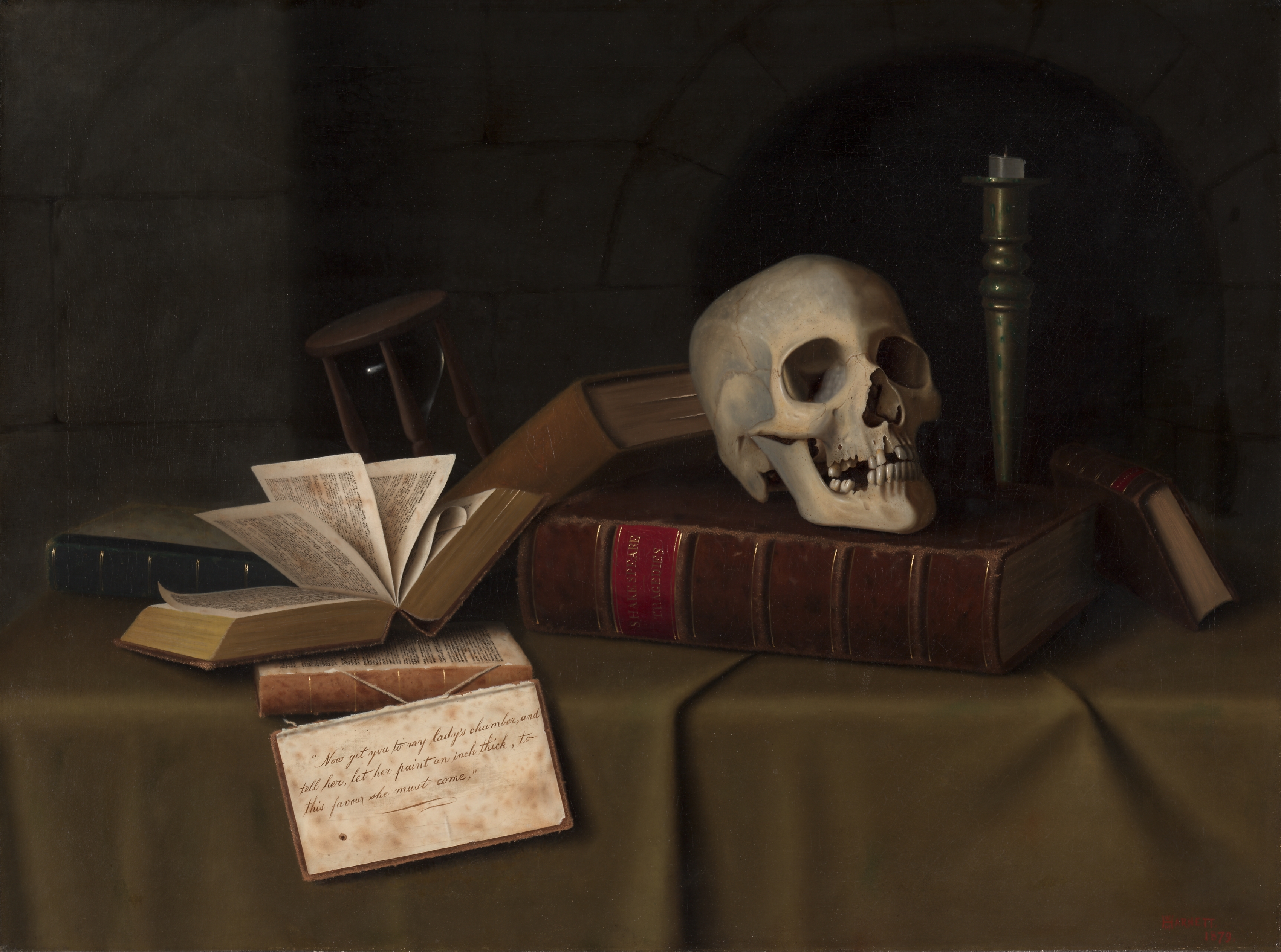|
Dostoevski
Fyodor Mikhailovich Dostoevsky (, ; rus, ÅÊîÅÇŃî ÅÅ¡î ůſţŃÅýÅ¡î ÅŃîîŃÅçÅýſ, Fyû°dor MikhûÀylovich Dostoyûˋvskiy, p=ùfòýèçdèr mòýèˆùxajlèvòýèˆdò dèstèùjefskòýèˆj, a=ru-Dostoevsky.ogg, links=yes; 11 November 18219 February 1881), sometimes transliterated as Dostoyevsky, was a Russian novelist, short story writer, essayist and journalist. Dostoevsky's literary works explore the human condition in the troubled political, social, and spiritual atmospheres of 19th-century Russia, and engage with a variety of philosophical and religious themes. His most acclaimed novels include ''Crime and Punishment'' (1866), ''The Idiot'' (1869), ''Demons'' (1872), and ''The Brothers Karamazov'' (1880). His 1864 novella, ''Notes from Underground'', is considered to be one of the first works of existentialist literature. Numerous literary critics regard him as one of the greatest novelists in all of world literature, as many of his works are considered highly influent ... [...More Info...] [...Related Items...] OR: [Wikipedia] [Google] [Baidu] |
Notes From Underground
''Notes from Underground'' ( pre-reform Russian: ; post-reform Russian: ; also translated as ''Notes from the Underground'' or ''Letters from the Underworld'') is a novella by Fyodor Dostoevsky, first published in the journal ''Epoch'' in 1864. It is a first-person narrative in the form of a "confession": the work was originally announced by Dostoevsky in ''Epoch'' under the title "A Confession". The novella presents itself as an excerpt from the memoirs of a bitter, isolated, unnamed narrator (generally referred to by critics as the Underground Man), who is a retired civil servant living in St. Petersburg. Although the first part of the novella has the form of a monologue, the narrator's form of address to his reader is acutely ''dialogized''. According to Mikhail Bakhtin, in the Underground Man's confession "there is literally not a single monologically firm, undissociated word". The Underground Man's every word anticipates the words of an other, with whom he enters into an ... [...More Info...] [...Related Items...] OR: [Wikipedia] [Google] [Baidu] |
The Brothers Karamazov
''The Brothers Karamazov'' (russian: Åîůîîî ÅůîůťůÅñŃÅýî, ''Brat'ya Karamazovy'', ), also translated as ''The Karamazov Brothers'', is the last novel by Russian author Fyodor Dostoevsky. Dostoevsky spent nearly two years writing ''The Brothers Karamazov'', which was published as a serial in ''The Russian Messenger'' from January 1879 to November 1880. Dostoevsky died less than four months after its publication. Set in 19th-century Russia, ''The Brothers Karamazov'' is a passionate philosophical novel that enters deeply into questions of God, free will, and morality. It is a theological drama dealing with problems of faith, doubt, and reason in the context of a modernizing Russia, with a plot that revolves around the subject of patricide. Dostoevsky composed much of the novel in Staraya Russa, which inspired the main setting. It has been acclaimed as one of the supreme achievements in world literature. Background Although Dostoevsky began his first notes for ''The ... [...More Info...] [...Related Items...] OR: [Wikipedia] [Google] [Baidu] |
Demons (Dostoevsky Novel)
''Demons'' ( pre-reform Russian: ; post-reform rus, ÅÅçîî, Bûˋsy, ùbòýe.sè´; sometimes also called ''The Possessed'' or ''The Devils'' is a novel by Fyodor Dostoevsky, first published in the journal ''The Russian Messenger'' in 1871ã72. It is considered one of the four masterworks written by Dostoevsky after his return from Siberian exile, along with ''Crime and Punishment'' (1866), ''The Idiot'' (1869), and ''The Brothers Karamazov'' (1880). ''Demons'' is a social and political satire, a psychological drama, and large-scale tragedy. Joyce Carol Oates has described it as "Dostoevsky's most confused and violent novel, and his most satisfactorily 'tragic' work." According to Ronald Hingley, it is Dostoevsky's "greatest onslaught on Nihilism", and "one of humanity's most impressive achievementsãperhaps even its supreme achievementãin the art of prose fiction." ''Demons'' is an allegory of the potentially catastrophic consequences of the political and moral nihilism that we ... [...More Info...] [...Related Items...] OR: [Wikipedia] [Google] [Baidu] |
Russian Empire
The Russian Empire was an empire and the final period of the Russian monarchy from 1721 to 1917, ruling across large parts of Eurasia. It succeeded the Tsardom of Russia following the Treaty of Nystad, which ended the Great Northern War. The rise of the Russian Empire coincided with the decline of neighbouring rival powers: the Swedish Empire, the PolishãLithuanian Commonwealth, Qajar Iran, the Ottoman Empire, and Qing China. It also held colonies in North America between 1799 and 1867. Covering an area of approximately , it remains the third-largest empire in history, surpassed only by the British Empire and the Mongol Empire; it ruled over a population of 125.6 million people per the 1897 Russian census, which was the only census carried out during the entire imperial period. Owing to its geographic extent across three continents at its peak, it featured great ethnic, linguistic, religious, and economic diversity. From the 10thã17th centuries, the land ... [...More Info...] [...Related Items...] OR: [Wikipedia] [Google] [Baidu] |
Novella
A novella is a narrative prose fiction whose length is shorter than most novels, but longer than most short stories. The English word ''novella'' derives from the Italian ''novella'' meaning a short story related to true (or apparently so) facts. Definition The Italian term is a feminine of ''novello'', which means ''new'', similarly to the English word ''news''. Merriam-Webster defines a novella as "a work of fiction intermediate in length and complexity between a short story and a novel". No official definition exists regarding the number of pages or words necessary for a story to be considered a novella, a short story or a novel. The Science Fiction and Fantasy Writers Association defines a novella's word count to be between 17,500 and 40,000 words. History The novella as a literary genre began developing in the Italian literature of the early Renaissance, principally Giovanni Boccaccio, author of ''The Decameron'' (1353). ''The Decameron'' featured 100 tales (named nov ... [...More Info...] [...Related Items...] OR: [Wikipedia] [Google] [Baidu] |
Reforms Of Russian Orthography
The Russian orthography has been reformed officially and unofficially by changing the Russian alphabet over the course of the history of the Russian language. Several important reforms happened in the 18thã20th centuries. Early changes Old East Slavic adopted the Cyrillic script, approximately during the 10th century and at about the same time as the introduction of Eastern Christianity into the territories inhabited by the Eastern Slavs. No distinction was drawn between the vernacular language and the liturgical, though the latter was based on South Slavic languages, South Slavic rather than East Slavic languages, Eastern Slavic norms. As the language evolved, several letters, notably the ''yuses'' (îˆ, î˜, îÎ, î´) were gradually and unsystematically discarded from both secular and church usage over the next centuries. The emergence of the centralized Russian state in the 15th and 16th centuries, the consequent rise of the state bureaucracy along with the development of t ... [...More Info...] [...Related Items...] OR: [Wikipedia] [Google] [Baidu] |
Adoption Of The Gregorian Calendar
The adoption of the Gregorian Calendar was an event in the early modern history of most cultures and societies, marking a change from their traditional (or "old style") dating system to the modern (or "new style") dating system the Gregorian calendar that is widely used around the world today. Some states adopted the new calendar from 1582, some did not do so before the early twentieth century, and others did so at various dates between. A number of jurisdictions continue to use a different civil calendar. For many the new style calendar is only used for civil purposes and the old style calendar remains used in religious contexts. Today, the Gregorian calendar is the world's most widely used civil calendar. During and for some time after the change between systems, it has been common to use the terms "Old Style" and "New Style" when giving dates, to indicate which calendar was used to reckon them. The Gregorian calendar was decreed in 1582 by the papal bull by Pope Gregory ... [...More Info...] [...Related Items...] OR: [Wikipedia] [Google] [Baidu] |
Human Condition
The human condition is all of the characteristics and key events of human life, including birth, learning, emotion, aspiration, morality, conflict, and death. This is a very broad topic that has been and continues to be pondered and analyzed from many perspectives, including those of anthropology, art, biology, history, literature, philosophy, psychology, and religion. As a literary term, "the human condition" is typically used in the context of ambiguous subjects, such as the meaning of life or moral concerns. Some perspectives Each major religion has definitive beliefs regarding the human condition. For example, Buddhism teaches that existence is a perpetual cycle of suffering, death, and rebirth from which humans can be liberated via the Noble Eightfold Path. Meanwhile, many Christians believe that humans are born in a sinful condition and are doomed in the afterlife unless they receive salvation through Jesus Christ. Philosophers have provided many perspectives. An ... [...More Info...] [...Related Items...] OR: [Wikipedia] [Google] [Baidu] |
World Literature
World literature is used to refer to the total of the world's national literature and the circulation of works into the wider world beyond their country of origin. In the past, it primarily referred to the masterpieces of Western European literature; however, world literature today is increasingly seen in an international context. Now, readers have access to a wide range of global works in various translations. Many scholars assert that what makes a work considered world literature is its circulation beyond its country of origin. For example, Damrosch states, "A work enters into world literature by a double process: first, by being read as literature; second, by circulating out into a broader world beyond its linguistic and cultural point of origin". Likewise, the world literature scholar Venkat Mani believes that the "worlding" of literature is brought about by "information transfer" largely generated by developments in print culture. Because of the advent of the library, "Pu ... [...More Info...] [...Related Items...] OR: [Wikipedia] [Google] [Baidu] |
Existentialism
Existentialism ( ) is a form of philosophical inquiry that explores the problem of human existence and centers on human thinking, feeling, and acting. Existentialist thinkers frequently explore issues related to the meaning, purpose, and value of human existence, and the role of personal agency in transforming one's life. In the view of an existentialist, the individual's starting point is phenomenological, grounded in the immediate direct experience of life. Key concepts include " existential angst", a sense of dread, disorientation, confusion, or anxiety in the face of an apparently meaningless or absurd world, and also authenticity, courage, and human-heartedness. Existentialism is associated with several 19th- and 20th-century European philosophers who shared an emphasis on the human subject, despite often profound differences in thought. Among the earliest figures associated with existentialism are philosophers Sû¡ren Kierkegaard and Friedrich Nietzsche and novel ... [...More Info...] [...Related Items...] OR: [Wikipedia] [Google] [Baidu] |
Lyubov Dostoevskaya
Lyubov Fyodorovna Dostoevskaya (russian: ÅîÅÝŃäÅýî ÅÊîÅÇŃîŃÅýŧů ÅŃîîŃÅçäÅýîŤůî; 14 September 1869 ã 10 November 1926), also known by the name Aimûˋe Dostoyevskaya, was a Russian writer, memoirist, and the second daughter of famous writer Fyodor Dostoevsky and his wife Anna. Their first, Sonya, was born in 1868 and died the same year. Lyubov never married. Later in her life she became estranged from her mother and moved out of their house. In 1913, after a trip abroad for medical treatment, Lyubov decided to stay there, and she lived abroad until her death in 1926. At that period she was also known by the name Aimûˋe Dostoyevskaya (russian: ÅÙÅ¥Åç ÅŃîîŃÅçÅýîŤůî). She died in Italy of pernicious anemia. Although Lyubov Dostoevskaya was Orthodox, the funeral rite was Catholic by mistake. A simple wooden cross on her grave was soon replaced by a small porphyry tomb. In 1931 '' Italia Letteraria'' magazine suggested that since Dostoevskaya was buried ... [...More Info...] [...Related Items...] OR: [Wikipedia] [Google] [Baidu] |
Fairy Tales
A fairy tale (alternative names include fairytale, fairy story, magic tale, or wonder tale) is a short story that belongs to the folklore genre. Such stories typically feature magic, enchantments, and mythical or fanciful beings. In most cultures, there is no clear line separating myth from folk or fairy tale; all these together form the literature of preliterate societies. Fairy tales may be distinguished from other folk narratives such as legends (which generally involve belief in the veracity of the events described) and explicit moral tales, including beast fables. In less technical contexts, the term is also used to describe something blessed with unusual happiness, as in "fairy-tale ending" (a happy ending) or "fairy-tale romance". Colloquially, the term "fairy tale" or "fairy story" can also mean any far-fetched story or tall tale; it is used especially of any story that not only is not true, but could not possibly be true. Legends are perceived as real within their cul ... [...More Info...] [...Related Items...] OR: [Wikipedia] [Google] [Baidu] |





%2C_page_5.gif)




